Why Gold Coast elder Aunty Joyce wants to see Yes vote for Voice
A Gold Coast Indigenous leader said her daughter was abused by a ‘no voter’ while walking through the shops. Read why she thinks it’s time for a change
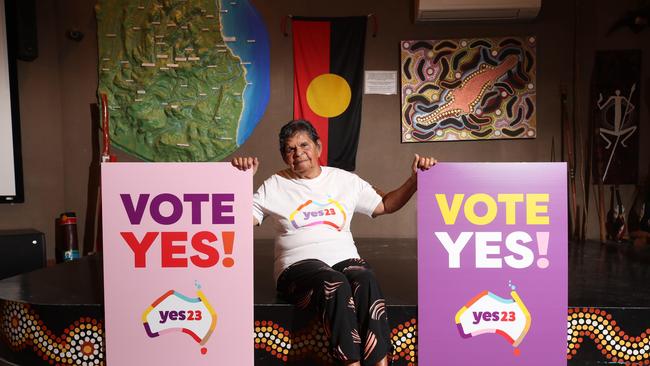
Gold Coast
Don't miss out on the headlines from Gold Coast. Followed categories will be added to My News.
Just in time, Aunty Joyce Summers spoke up.
The Gold Coast Indigenous leader had been asked to support an Aboriginal mother during a meeting with Child Safety Officers, but was perplexed as she listened to the conversation.
Bureaucratic language, indirect questions, inferred meanings, and all spoken over the head of the young mum – the red flags were flying for Aunty Joyce.
Interrupting, she asked the mother if she understood what was being said and what was at risk … the answer was no.
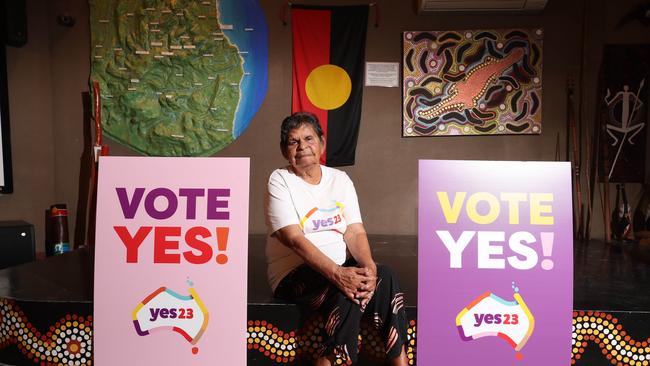
Explaining that she was actually in danger of losing her child, Aunty Joyce steered the discussion back into explicit, direct dialogue.
And the mother kept her child.
For that young Gold Coast mum, Aunty Joyce was her Voice.
The 83-year-old elder, born and raised on Ukerebagh Island inside the mouth of the Tweed River, was, that day, a literal advisory body who helped government representatives understand the experience and cultural context of a young Indigenous mother.
She empowered that mother to speak up and enabled the child to stay within its family unit, a result that only benefits our whole community.
There was no ill will on either side of the conversation that Aunty Joyce witnessed, but substantial miscommunication that could have easily ended with trauma.
Because for countless Indigenous women, losing a child into ‘the system’ is not just a fear but a reality.
Aunty Joyce has seen it all too often. And while her Voice saved the day in this instance, she believes that the Voice could truly end this terrible trend.
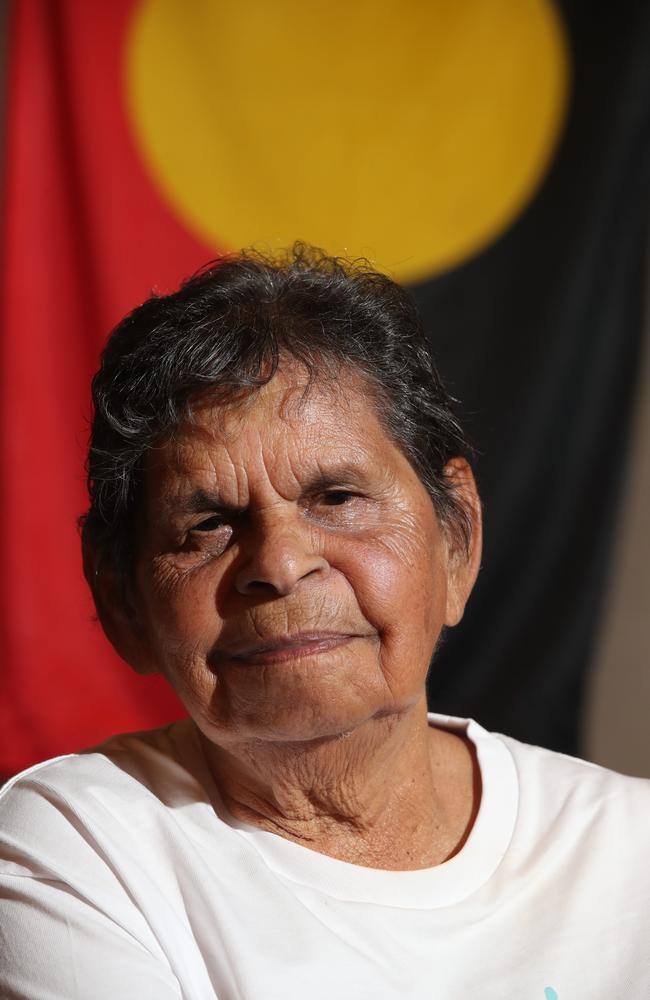
“Indigenous mothers don’t make jokes about needing a drink at the end of a hard day, we know too well how that can end,” she said.
“The legacy of the Stolen Generation still exists in that we are held to a different standard. Whether we are not believed or we do not understand the processes, our culture is one in which our children have been at risk.
“I remember when I was a child, my mother would make sure anytime we went to town I was dressed up, perfectly neat and clean, and absolutely quiet.
“One time we were on Tweed Street and I laughed out loud and she nearly had a fit, we could not afford to draw any attention to ourselves because the fear was that we would be taken.
“I remember a big family in Fingal and some of the kids were lighter skinned and every time the government man came around, their parents would colour them black with charcoal because it was the ‘half-caste’ kids they wanted to take.
“That trauma still echoes down now. Those children who were taken, they can struggle when they become parents because they were never given that love and connection. And their children become part of the cycle.”
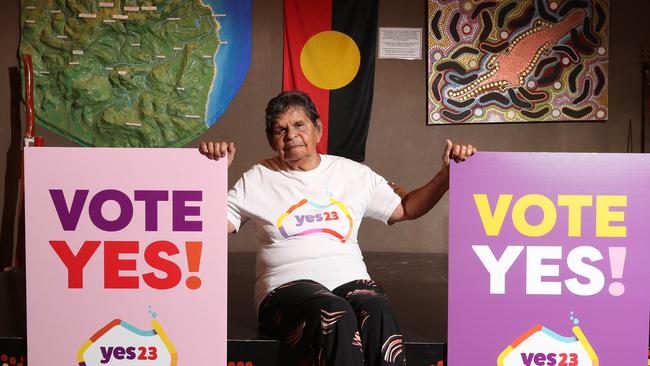
For Aunty Joyce, being a Voice for her mob is in her DNA. Her uncle was a political activist while she fought alongside her brother Cedric Morgan and Australia’s first Indigenous Member of Parliament Neville Bonner to protect Ukerebagh Island, which was declared an Aboriginal reserve in 1927 to segregate them from the general population, from development.
Aunty Joyce is now the chairperson of the Krurungal Aboriginal Corporation, was the former chair of Gold Coast City’s National Aboriginal and Islander’s Day Observance Committee, was recipient of the 2015 Premier’s Award, was recognised as a Bond University Fellow for her contribution working with the university’s Nyombil Indigenous Support Centre.
Demonstrating her own passion for education, she completed a degree in Indigenous Studies at the age of 68 at Southern Cross University.
Despite fighting for her mob her whole life, Aunty Joyce said she has plenty of energy to keep campaigning for a Yes vote in next weekend’s Voice referendum.
But that doesn’t mean it’s always easy.
“My daughter was walking through Treetops shopping centre the other day, wearing her Yes shirt, and she was abused by a No voter,” said Aunty Joyce.
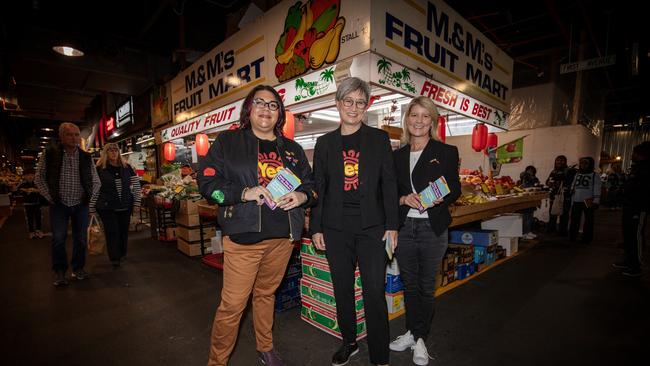
“He was spouting off all these conspiracies but she took her time and explained the reality of the referendum. And you know what? She turned him around. There is nothing to fear, we just want to be able to help our own people with their own problems.
“It’s time to vote yes because the current situation isn’t working and listening to Indigenous people is the way to change that. It will lead to better results.
“It’s time to vote yes because it’s time to recognise 65,000 years of history in our Constitution. We don’t want anyone’s land. We just want validation and recognition of our place in Australian history.”
When it comes to issues affecting Indigenous people on the Gold Coast, Aunty Joyce said the biggest problems were in the areas of housing/homelessness, domestic violence and mental health.
She said while these issues also affected non-Indigenous people, there were additional barriers in accessing help for Aboriginal and Torres Strait Islander peoples.
She said those barriers, especially in terms of housing, had existed for generations – as she knows first-hand.
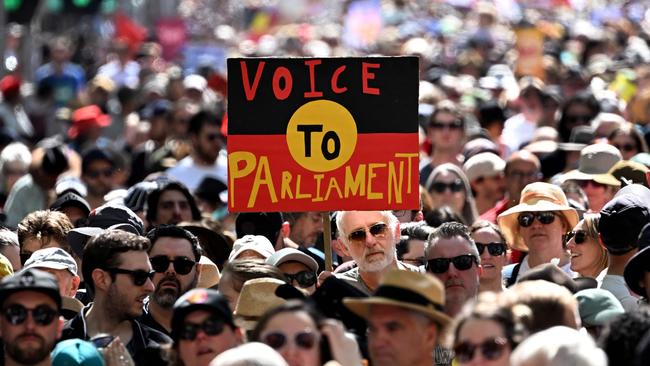
“In 1972, I was a divorced mother and needed to find housing. Do you know how hard it was to get accommodation if you’re a black woman, you’re single, and you’ve got five children?
“All I could do in the end was ring up and say, ‘You have a flat vacant, will you let it to black people? If you won’t, I won’t waste your time or mine’.
“Because you get sick of getting knocked back. But I had to keep on keeping on.
“If anyone doesn’t like you because you’re black, that’s their problem, not yours. Except when you have five children and no home, that becomes your problem.
“Fortunately, I eventually found a few kind landlords.
“But this isn’t a problem from 40 years ago … it still happens today. My grandson and his non-Indigenous wife know that only she should apply or go to inspections.
“Discrimination might be illegal, but that doesn’t mean it doesn’t still happen.
“I know there are so many businesses and industries that work hard to teach cultural awareness, but are we sure that what was learned was also implemented?
“That’s why we need more education in these areas like housing and health, and schooling as well. This is what the Voice could help with.
“In schools right now we have Indigenous support people who are not Indigenous. How does that work?”
Aunty Joyce said while many questioned the dollars spent on funding Indigenous programs, she said it was all the more reason why we must change our approach.
She said in her own experience, there was little if any ability to provide feedback to ensure better results when implementing programs.
“Often you barely have time to get a program running and then you’re told you have to have set results on a time frame that you know won’t work, but there is no one to listen, and then it’s cut and something else starts,” she said.
“The Voice will create better outcomes because it will give proper attention to our people and not just use us for community consultation and a simple ‘tick the box’.
“We [Krurungal] struggle for funding each year, the Voice would help organisations like us, who help the community, stay alive
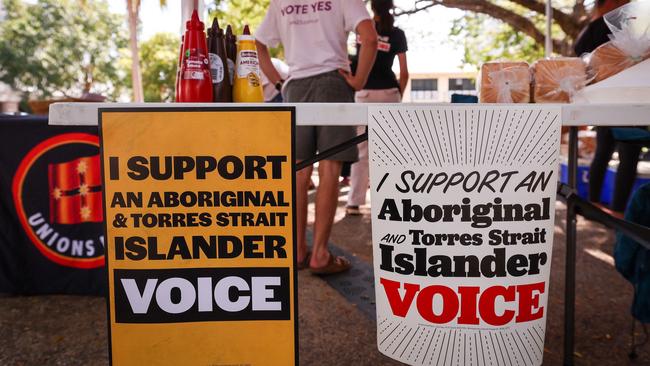
“There are people in our community who do need help and need more help than what they’re getting. We’re restricted to the policies of what we can and can’t do, and we can’t step outside of that. But if we were allowed self-determination, we could work out solutions that work for our people.
“There is no continuity. There is so much more that could be done, right here, than is being done.”
While Aunty Joyce has no fear when it comes to voting for the Voice, she said it was a very different story at the 1967 referendum, which successfully sought to change the Constitution so that Aboriginal and Torres Strait Islander peoples, like all other Australians, would be counted as part of the population and the Commonwealth would be able to make laws for them.
She said while Indigenous people were given the right to vote in Queensland in 1965, three years after the passing of the Commonwealth Electoral Act 1962, she was turned away from the voting booth.
“At the 1967 referendum, I went down to vote with a white friend, my neighbour, and I was told I could not vote. My friend was allowed to, however. She was disgusted on my behalf, but what could we do?
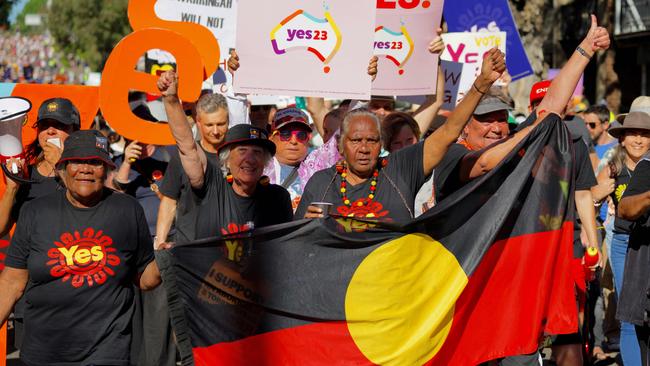
“I’ve been kicked out of places for the colour of my skin while my white friends were allowed to stay, it’s just how it was. And it wasn’t that long ago.
“This is why we all need to learn our history. Most people can’t even tell you that the first Prime Minister of Australia was Edmund Barton, let alone that he said: ‘I do not think that the doctrine of the equality of man was really ever intended to include racial equality’.
“He described non-white races as ‘unequal and inferior’, and that belief permeated much of the 20th century.
“People think this is ancient history and that we should ‘get over it’. How can we get over it when the effects continue on today?
“Until we recognise our history, until we commit to truth-telling, we are in danger of repeating the same mistakes.
“And that is a loss for every Australian.”
Using her own Voice, this is the truth Aunty Joyce will speak until the country listens.





